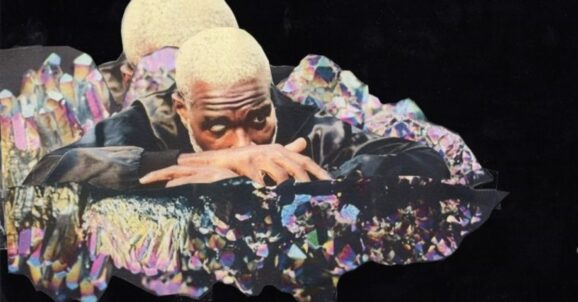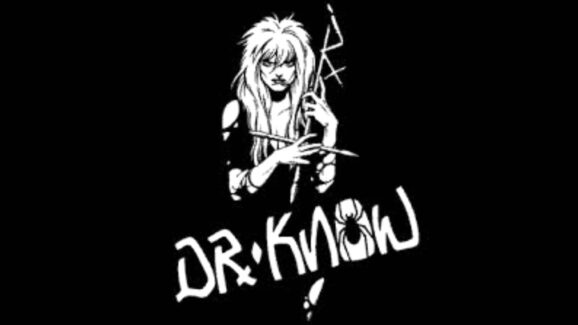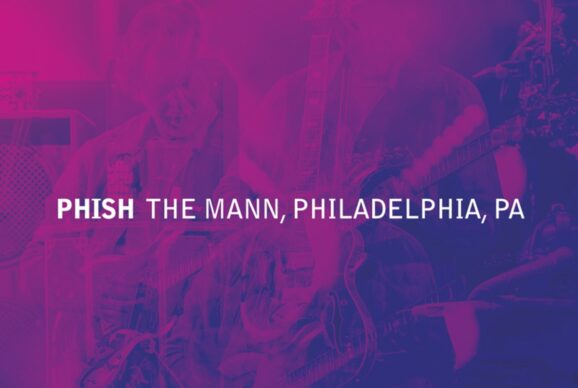 In the little over five years TV on the Radio has been together, the strides they’ve made have been tremendous. Having gone from being an unknown Brooklyn band playing in bowling alleys, to selling out major clubs in every corner of the country, the group has recently emerged with a new album that’s been listed in Rolling Stone as the number one college album in the country.
In the little over five years TV on the Radio has been together, the strides they’ve made have been tremendous. Having gone from being an unknown Brooklyn band playing in bowling alleys, to selling out major clubs in every corner of the country, the group has recently emerged with a new album that’s been listed in Rolling Stone as the number one college album in the country.
By fusing musical styles that just don’t know boundaries, TV on the Radio has established themselves as one of the most “must watch” groups on the scene. Not only have they established their own sound that’s hard to mistake, but they’ve made it to the big leagues while keeping true to their values. Point in case, when the group performed a show that a local DJ shouted out as having been on behalf of the United States marines, TVOTR’s singer, Tunde Adebimpe, made a point to say that this did not represent the bands views and that they would not support the sponsor. This is just one of many cases where the band has stayed true to their roots while getting their message across to the masses.
So as the tour behind their recently released Return to Cookie Mountain winds on, Glide’s Andrew Bruss caught up with Tunde to get his views on everything from their switch to a major label, to the genocide in Darfur.
First things first, where does the story behind the band start?
Where do I feel things started? I feel like it started when I met Dave and we started bullshitting each other extensively. He moved into a loft I was living in with his brother, who’s also a painter and we all just lived there and made art. I got to know Dave a bit better because we had the same sense of humor and we became friends very quickly. Making music just became an extension of making art together and having conversations. Neither of us was very interested in the idea of having a band, but we definitely liked the idea of sitting in a room and recording, trying to make soundscapes and putting words and poetry over it.
I heard a quote from David Bowie where he said that you “have a strong link with the great body of American poetry, especially Beat poetry.” Do you think it’s fair to say you guys feel connected with the tradition of beat poetry?
Poetry in general is a big influence, but beat poetry hasn’t been around since the 50’s. A lot of our favorite authors are from the beat era though.
Maybe this is a stretch, but is it fair to say that folks like Kerouac and Ginsberg might have influenced the lyrical style of the group?
I don’t know if it’s so much of a direct influence as much as I’d say that the spirit of a lot of those artists had a direct influence. The spirit of getting together with a bunch of your friends and working out social and emotional difficulties with words definitely served as a pretty stellar example for us.
So at what point did Kyp Malone come into play?
Kyp joined the band after both Dave and I finished the Young Liars EP. At that point we had gone through a few different formations as a live band, with Dave and I, and Dave’s brother, Jason. We decided we would be a two person organization when recording, and one day Jason said “well, I’ve been talking to Kyp and if it’s just going to be a two person band, then the perfect third person is Kyp.” And Dave and I just thought that it made total sense. Towards the end of the recording of Desperate Youth, Jaleel and Gerard joined the band. They got into things as two friends who were exponentially talented musicians and then they joined the band, and started writing songs, and began contributing that way. Everything that’s been done has been a chance experiment that started with us just throwing things out there and being like, “lets see what this sounds like.”
So as you look back at the career of TVOTR from the start to the present, can you think of anyone else who you feel might have played an important role in the group’s development outside of the artist context?
Our friend Napoleon Hernandez was our landlord when we were making Young Liars. He heard what we were doing and we were both running around working jobs just to finance the album, and he kept hearing the songs we were working on and he said, “you guys don’t have to pay rent for the next two months if you finish this record.” So that was a huge, huge load off. And that facilitated us finishing the record. He’s definitely someone who’s supported us 100% when there was, logistically speaking, no real reason to support us. So he played a huge part.
Cory from Touch and Go records was very supportive with his enthusiasm in putting out our first CD. It’s not like we went around beating down peoples doors saying “we’ve got this record, we’ve got to put it out.” We went to Cory because Dave and I were talking about music in general and Dave mentioned to Cory that we had been making music and he said he wanted to hear what kind of music we were making. So we recorded Young Liars, and we gave him a listen when it was almost done, and he said he wanted to put it out on Touch and Go, which was incredible for us.
On the subject of people who’ve played an important role in the story, its only fair to mention that TVOTR members have played big roles in the careers of other artists. Dave produced work for the Yeah Yeah Yeahs and the group has performed with them in addition to members of Antibalas Afrobeat Orchestra…
Members of Antibalas often play with us on stage, when we can get everyone together. The same goes for the Yeah Yeah Yeahs. Sometimes if we’re both playing the same festival, Nick will come out and play on “Staring at the Sun” or something. Martin from Antibalas used to live in the same loft as our bassist, Gerard, as well as Julian from the Liars. It was a really special spot. So many people always came through, and it just wound up becoming this very nice crashing pad for people to come and sit around. You could help someone on a project, or just talk about what you were working on, or even just sit around and read comic books. I feel like the spirit of that, even though nobody really lives there anymore, is the spirit of our extended family. I want this band to be a crash pad for all of our friends who might need to do something different from what they’re doing. It’s a hard thing to put words to, but I just really love this idea of all these people working on something they all love, and getting together and doing it.
 It’s almost got the same artistic communal vibe of the beat era that you mentioned being influenced by.
It’s almost got the same artistic communal vibe of the beat era that you mentioned being influenced by.
Yeah, and understand it too, because making work can be such a solitary endeavor. Any given person is so lucky to find one person they can work with, let alone a whole group of people. The more I’m in the “music industry” the more I realize what a rare thing it is to be surrounded by a group of people who are so ego-less to collaborate with each other. They’re not collaborating because they think you’re going to blow up and they want to get on your record. They’ll be working on one thing and hear about what you’re working on and they might think it’s awesome, so they want to get on board.
It’s not just a career move.
Exactly. It’s not about planning. It’s just a way for us to stay younger than we actually are.
I’ve been paying attention to the Concerts for Darfur, and I know you’re on the bill for one of the shows. On top of that, TVOTR posted the tune “Dry Drunk Emperor” for free on your website, which was a response to the Bush administrations handling of the aftermath of Hurricane Katrina. It seems like the group’s been involved in the political spectrum on a lot of different fronts. How do you feel your music relates to the realities of our current political situation, and more importantly, how do you feel your music politically influences the people who listen to your music?
It’s strange, because for me, it’s not so much a matter of influencing someone to be politically active; I just think that a lot of people don’t really understand that you have the ability to change things yourself. As far as political content in the music effecting or influencing anyone, I can’t think of it outside of the context of having a conversation with a friend about something that you think is fucked up. You know? I just don’t understand how certain things can still be as backwards as they are. I mean, we were all raised by the same TV; we all have proliferal knowledge of history. If someone were to have a very specific and well informed knowledge of history and its a conversation that wound up in a song, it would be the same as if it wound up in a conversation with someone where I was saying “well, what exactly do you not agree with in this situation, and what can we do to either get away from that, or make the situation better?”
Let’s say there’s a 16 year old kid who’s going to see TVOTR at the Concert for Darfur, and he has no idea where Sudan lies on a map, or what the Janjaweed militia is. What would you like him to leave the show thinking or having gained from the experience?
Well, you just hope to inform someone on a personal level, that the world is bigger than their neighborhood. I mean, you can Google a picture of the planet and look at it and see that it’s round. It’s occupied by land-masses and water and gasses, and it’s an interdependent system. It was designed to be an interdependent system. Arrogance should not be the end of the world. If someone is arrogant in thinking they are entitled to more land, oil, food, money, or water than someone else, it should not be the end of the world, and it should not be a valid reason for the world ending. It’s not a valid reason. Meteors headed towards the planet might be a valid reason, because that’s something nobody can control. I guess I would want someone leaving the show thinking about what a horrible, horrible situation it is [in Darfur]. I will never be able to fully grasp the horror of certain situations. But if someone in that situation were able to come to me and say “this is what’s going on here. I’m not coming to you as a beggar or a Leper or anything, I’m just telling you that this is actually how it is,” you can’t ignore that. I’d like someone to at least leave the show with that information, and what you do from there is absolutely your own choice. It’s about how you feel as a human being. I mean, if you were in that situation how would you want someone to react to you? You know? If someone was trying to wipe you out because of reasons that existed before you were born what would your mindset be?
I’d probably have to say survival. But to shift focus a bit, a lot of critics have talked about the first TVOTR release, OK Calculator, as having a very different sound from all of the other stuff you’ve recorded after that. First off, I’m curious as to whether or not you agree with this assessment and second, how you feel OK Calculator compares to the rest of the band’s work.
It is very different. I think every recording sounds very different. I mean, not completely, but they’ve each got varying stages of difference. More recently it’s been intentional. Anything you do is a process of learning. OK Calculator was a collection of 4-track and 8-track recordings that were almost like giving a sketchbook to someone. You have songs that are semi-serious, songs that are serious, and songs that are basically cartoons. That’s what I love about it. I feel it’s a document of getting together with a friend, and putting as many things down on a page as possible. That’s the spirit of it. It’s all mood, and it’s all what we were going through at the time. It’s also the sound of the record. I feel like every time Dave works on something, he becomes a better producer and it’s obvious. He’s honing his language so well, that it’s just become obvious. Dave’s definitely learning a lot from having worked on things for other people. So from Young Liars, to Desperate Youth, to Cookie Mountain, I can hear the progression in the sonic quality of the whole recording. But I also know that as a band, on Desperate Youth, and Cookie Mountain, we toured for almost 2 years straight. So when we came back and it was time to write, all 5 of us had a better idea of what we had at our disposal in a sonic sense, and we had developed this short hand language. The recording of the new record was a lot easier. Once we gave into things, we sort of unlearned what we knew about being in a band from the last record and started anew. We’ve learned a lot about ourselves, and the people we’re friends with, and have worked with, and that’s what ends up on the page when you’re done recording.
 So how would you characterize the evolution of the groups sound?
So how would you characterize the evolution of the groups sound?
I don’t know. Whenever I think about it, I think that Cookie Mountain is probably closest to OK Calculator, but only in terms of how varied the songs are next to each other. I’ve been told it still hangs together as a single record but I feel that sonically, Desperate Youth was sort of intentionally loose and quiet in places. Whereas I feel Young Liars was probably an easier listen for people. This may sound very ridiculous, but I feel like Cookie Mountain, is Desperate Youth wearing Young Liars clothes.
So you and Dave started out recording OK Calculator on a 4-track and now TVOTR is a 5-man group signed to Interscope records. How have things changed from the early days in New York, to being on a major label, whether it’s from a financing, touring, or marketing perspective?
I think it’s basically those things you just named. As far as I can tell right now, it’s the ability to get things done with a little bit less difficulty. We’re not booking the entire tour ourselves. We don’t have to do a lot of the business related things we had to do for a little while. And that makes things a lot easier to focus on what we want to do. It makes things easier in a lot of ways, but there are definitely compromises you have to make for being on a major label. I mean, people aren’t touching the recording, but they might go as far as marketing the record in ways we don’t agree with, but that’s to be expected. It’s pretty much their job. So that’s something we remember when we act on what we want to do.
The last thing I’m curious about is for anyone who isn’t familiar with your music, what’s the one thing they should know about TV on the Radio, before they make the investment to go to a show or buy an album?
Well, I’d say that if you’re going to come to a show, they should know that the shows use the records as a launch pad, because most of the songs we perform at the concerts get re-interpreted. And it’s definitely turned into more of a rock show. It’s stripped down in places, and very, very, very energetic because we’re all spastic. If you’re going to buy a record, you should know its something you can listen to while you’re doing nothing, or while you’re making something and it probably works both ways. Hopefully, you can keep listening to them for a while, and keep finding new things. This totally isn’t bullshit, but I’ve listened back to some of our old stuff now, and I was there when we were making it, but I’ll think to myself “that’s weird, I don’t even remember that being there.” It’s pretty layered and dense and there’s a lot to fall back into.
For more info see: tvontheradio.com












